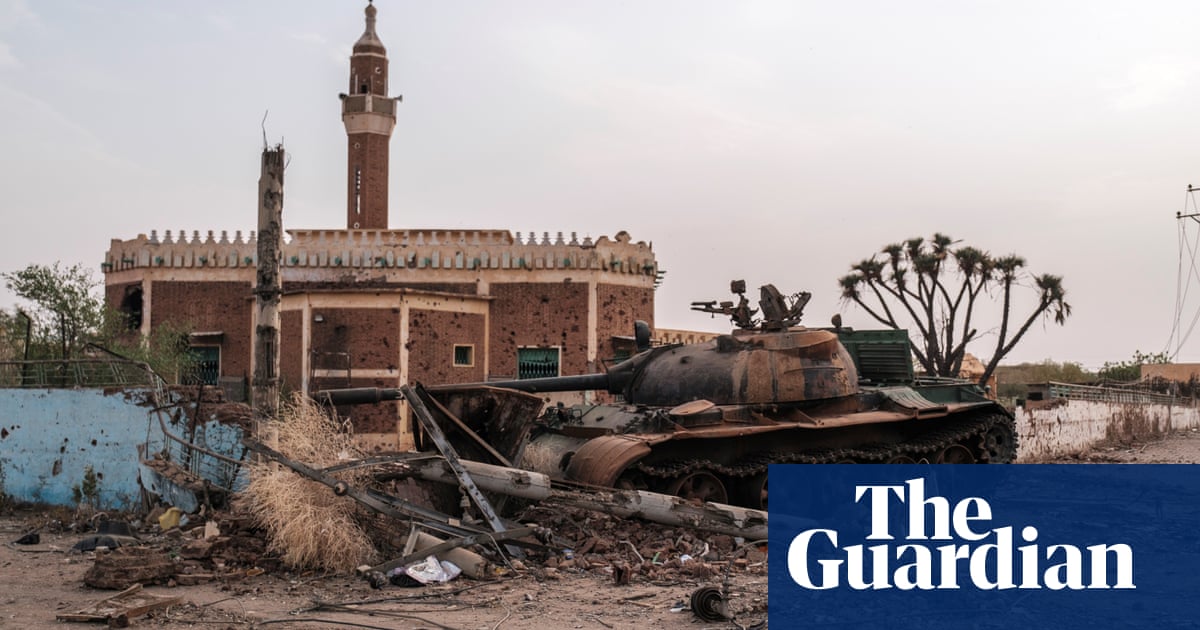Passports recovered from battlefields in Sudan suggest the United Arab Emirates is covertly putting boots on the ground in the country’s devastating civil war, according to leaked documents.
A 41-page document, sent to the UN security council and seen by the Guardian, contains images of Emirati passports allegedly found in Sudan and linked to soldiers of the Rapid Support Forces (RSF), the African nation’s notorious paramilitary.
The UAE has previously denied all accusations of supplying arms to the RSF, which is holding the city of El Fasher under siege in a wider campaign of ethnic cleansing in Darfur.
However, the suggestion that the Emirates has deployed personnel to assist the fighting in Sudan would be an escalation, further inflaming the geopolitical complexities of the 15-month long civil war between the RSF and Sudanese military.
The passports are claimed to have been recovered from Omdurman, the city across the Nile from the capital, Khartoum, in an area that was held by the RSF but recently reclaimed by the Sudanese army.
Analysts described the discovery as a “smoking gun” that challenged UAE denials and raised questions over what the US and UK know about the level of the Gulf state’s involvement in Sudan and whether the west has done enough to rein in backing of a militia accused of genocide.
The former Sudan adviser to the US government, Cameron Hudson, said the west would be obliged to act. “This will force Washington to acknowledge what it knows about this, and will force them to respond,” he said.
Some experts believe that, without the UAE’s alleged involvement, the conflict driving the world’s worst ongoing humanitarian crisis would already be over.
The document, sent last month to the UN security council, also indicates that the Emirates has supplied the RSF with drones modified to drop controversial thermobaric bombs. These are more devastating than conventional explosives of similar size, and there have been calls to ban them.
The papers include photographs of pages of four passports apparently belonging to UAE male nationals, two born in Dubai, one in the city of Al Ain and another Ajman, the fifth-largest city in the UAE. All are aged between 29 and 49.
A source familiar with the discovery said the passports were recovered from the wreckage of a vehicle found in Omdurman in February. “The assessment is that they belong to UAE intelligence officers,” they added, speaking on condition of anonymity.
Two passports belonging to Yemeni nationals were found in the same location, with one, a 38-year-old, born in Dubai, and a 31-year-old from Dhale, south-west Yemen. The RSF has previously sent thousands of its fighters to Yemen to fight against the Houthis, and the apparent recovery of Yemeni passports in Sudan suggest such help may have been reciprocated.
The UAE has repeatedly refuted allegations it is has sent military support to any of Sudan’s warring parties. Last month, the Emirati mission to the UN said claims suggesting otherwise were “lies, disinformation and propaganda disseminated by some Sudanese representatives”.
However, UN sanction monitors have described claims that the UAE provided military support to the RSF as “credible”.
Kholood Khair, a Sudanese political analyst and the founding director of Confluence Advisory, said the passports reframed the debate. “This makes a mockery of the UAE’s insistence it has nothing to do with militarily supporting the RSF.
“It’s a smoking gun when corroborated with other evidence. The Emirates are giving a lot of hands-on immediate support to the RSF, something they have been denying because there hasn’t been this direct on-the-ground link,” she said.
Hudson, also a former CIA intelligence analyst for Africa, said the discovery meant it would be harder for the UAE to distance itself from Sudan. “By and large, they’ve worked through proxies, not directly getting their hands dirty. They wanted some measure of plausible deniability and they’ve clung to this.”
The document contains details of military hardware recovered from battlegrounds in Africa’s third-largest country. Experts said that a quadcopter drone with tubes to drop modified 120mm mortar bombs was likely to have been supplied by the UAE. Images of boxes containing armaments are marked as being sent by a Serbian arms company to the “UAE Armed Forces, joint logistics command based in Abu Dhabi”. The boxes indicate that the bombs they contain have a thermobaric filling, which produces a high-temperature blast in an enhancement to conventional explosives.
According to the document, the bombs were recovered from Sudan’s state broadcast headquarters in Omdurman after the country’s military – also accused of numerous war crimes – forced the RSF from the building.
A spokesperson for Fenix Insight, which analyses arms for government and non-governmental organisations, said: “We know those modified mortar bombs come with that UAV [unmanned aerial vehicle, or drone] kit. It’s all one package, produced by one company, and if it’s gone to the UAE armed forces, then it’s as directly attributable as you can get.”
Nic Jenzen-Jones, the director of Armament Research Services, which has tracked UAE weapons to Libya and Yemen, agreed that the document indicated 120mm mortar shells supplied to Emirati forces appear to have been “captured” in Sudan.
The document also contains images of surface-to-surface missiles, anti-aircraft guns and wire-guided anti-tank systems, but experts said there was sufficient information to link them to the UAE.
The UK is the UN security council’s current “penholder” on Sudan, meaning it leads the council’s activities on the country. It is unclear how the council will react to the document.
UAE officials have been contacted for comment.
